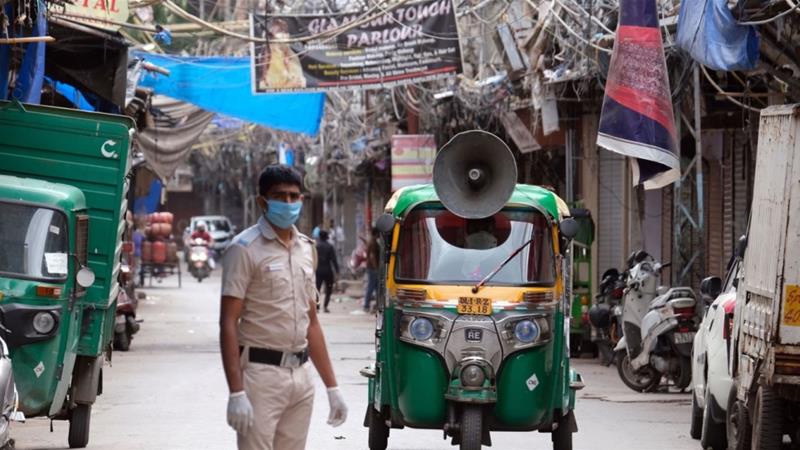Two health advocacy groups have written to the Indian government asking it to rescind patents given to Gilead Sciences for the drug remdesivir so it can be distributed more fairly to coronavirus patients around the world, particularly in poorer nations.
Drug patents in India are an important issue as many countries depend on generic drugmakers to manufacture and sell cheaper versions of critical drugs to them. Gilead's three patents in India for remdesivir stem from 2009, when the drug was in development to treat Ebola.
Remdesivir is the only drug approved to treat COVID-19 after promising early trial results prompted United States regulators to grant emergency use authorisation on May 2.
To expand its access, Gilead said this week that it had signed nonexclusive licensing pacts with five generic drugmakers based in India and Pakistan, allowing them to make and sell remdesivir for 127 countries.
But health access groups say the pacts mean cheaper forms of the drug may not become available in nations seen as nonprofitable to the five drugmakers.
Signage is displayed outside Gilead Sciences Inc headquarters in California, the United States [File: David Paul Morris/Bloomberg]
 "The licences divide the global market into two, and profitable markets are retained with Gilead and less profitable markets are given to the five generic companies," said K Gopakumar, senior legal researcher at Third World Network, which sent a letter to the Indian government on Wednesday.
"The licences divide the global market into two, and profitable markets are retained with Gilead and less profitable markets are given to the five generic companies," said K Gopakumar, senior legal researcher at Third World Network, which sent a letter to the Indian government on Wednesday.
The letter by Third World Network, a Malaysia-based non-profit group, followed a similar appeal by India's Cancer Patients Aid Association last week.
The aid group Doctors Without Borders (Medecins Sans Frontieres, or MSF) has also opposed Gilead's patents on remdesivir, saying such licensing pacts are "not acceptable" amid a global health emergency.
Gilead's patents on remdesivir in India allow it to exclusively make and sell the drug in the country until 2035 unless it licenses those rights out.
A Gilead spokeswoman told Reuters in an email that the company is "actively considering every potential pathway" to make the drug available to those who need it as fast as possible.
She said the company was in talks with the United Nations-backed Medicines Patent Pool and the United Nations Children's Fund to expand access to it.'
"Compulsory licensing will not solve the challenge of limited supply," the spokeswoman said, referring to a provision under which countries can allow manufacturers to make certain drugs without the patent owner's consent.
India's commerce and health ministries did not immediately respond to emails seeking comment.
Cancer Patients Aid Association said it might pursue legal action, noting that cancer patients have compromised immunity and are highly susceptible to the virus.
"It is imperative at a time like this that no monopoly rights be granted, so that more manufacturers can produce the drug to be made available to all the people who need it, at affordable costs," it said.
Except for remdesivir, there are currently no other drugs or vaccines approved to fight coronavirus, which has killed nearly 300,000 people globally.

No comments:
Post a Comment